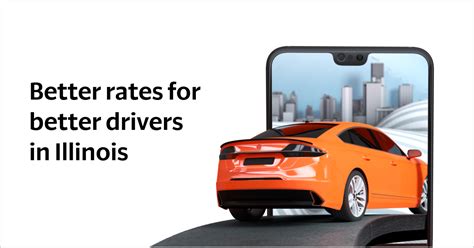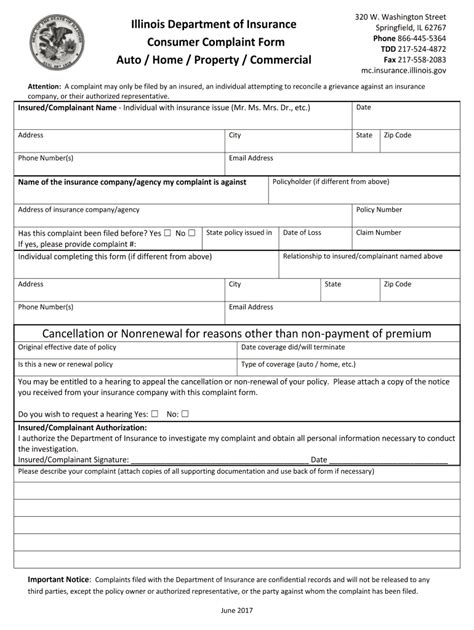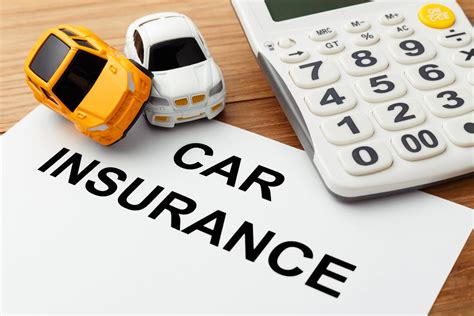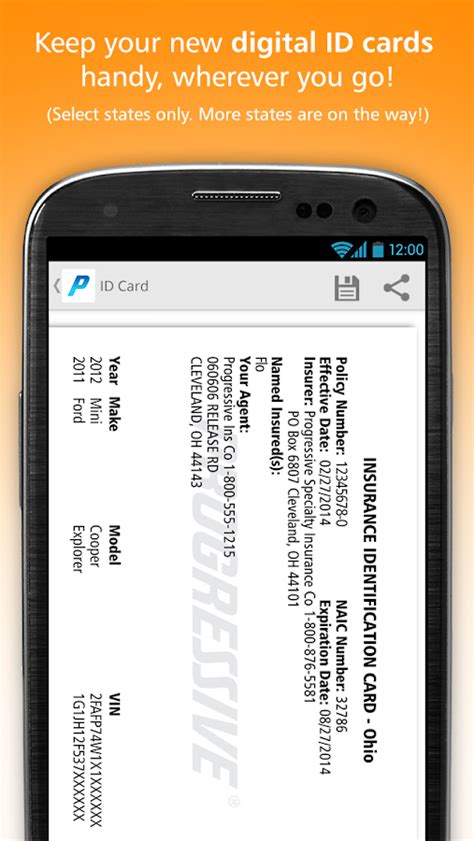Illinois Auto Insurance

Welcome to this comprehensive guide on Illinois Auto Insurance, where we delve into the intricacies of automotive coverage in the Prairie State. Understanding the unique landscape of insurance policies and regulations is essential for every driver in Illinois. In this article, we will navigate through the specific requirements, coverages, and options available, ensuring you have the knowledge to make informed decisions about your vehicle insurance.
Illinois is known for its diverse geography, ranging from the bustling city of Chicago to the rolling plains and vast farmlands. This diversity extends to the automotive insurance landscape as well, with varying needs and requirements across the state. Whether you're a resident of the Windy City or a driver navigating the rural roads, understanding the ins and outs of Illinois auto insurance is crucial for your peace of mind and financial protection.
Understanding Illinois Auto Insurance Requirements

In Illinois, having adequate auto insurance is not just a recommendation; it’s the law. The state mandates that all registered vehicles carry a minimum level of liability coverage to ensure financial responsibility in the event of an accident. Let’s break down these requirements and explore the specific coverages you need to comply with Illinois regulations.
Minimum Liability Coverage
Illinois requires drivers to carry liability insurance, which protects others in the event of an accident for which you are at fault. The minimum liability coverage limits in Illinois are as follows:
- Bodily Injury Liability: 25,000 per person and 50,000 per accident
- Property Damage Liability: $20,000 per accident
These limits are designed to provide a basic level of protection, but it’s important to note that many experts recommend carrying higher limits to ensure adequate coverage in the event of a severe accident.
| Liability Coverage | Minimum Limits |
|---|---|
| Bodily Injury (per person) | $25,000 |
| Bodily Injury (per accident) | $50,000 |
| Property Damage | $20,000 |

Uninsured and Underinsured Motorist Coverage
Illinois also requires drivers to carry uninsured and underinsured motorist coverage (UM/UIM). This coverage protects you if you’re involved in an accident with a driver who either has no insurance or insufficient insurance to cover the damages.
The minimum limits for UM/UIM coverage in Illinois are the same as the liability limits:
- Uninsured Motorist Bodily Injury: 25,000 per person and 50,000 per accident
- Underinsured Motorist Bodily Injury: 25,000 per person and 50,000 per accident
While these minimums are legally required, it’s worth considering higher limits to ensure you’re adequately protected in the event of a collision with an uninsured or underinsured driver.
| Uninsured/Underinsured Motorist Coverage | Minimum Limits |
|---|---|
| Bodily Injury (per person) | $25,000 |
| Bodily Injury (per accident) | $50,000 |
Other Important Coverages
In addition to the mandatory liability and UM/UIM coverages, Illinois drivers may also benefit from considering the following optional coverages:
- Collision Coverage: Pays for damages to your vehicle if you’re involved in an accident, regardless of fault.
- Comprehensive Coverage: Covers damages to your vehicle caused by events other than collisions, such as theft, vandalism, or natural disasters.
- Medical Payments Coverage: Helps cover medical expenses for you and your passengers, regardless of fault.
- Rental Car Reimbursement: Provides rental car coverage if your vehicle is being repaired after an insured loss.
Factors Affecting Illinois Auto Insurance Rates

Insurance rates in Illinois can vary significantly depending on a multitude of factors. Understanding these factors can help you navigate the insurance landscape and potentially save money on your premiums.
Driver Profile and History
Your driving record and personal details play a significant role in determining your insurance rates. Factors such as age, gender, driving history (including accidents and violations), and credit score can all impact your premiums. Younger drivers and those with a history of accidents or violations may face higher rates, while older, experienced drivers with clean records may enjoy more competitive pricing.
Vehicle Type and Usage
The type of vehicle you drive and how you use it can also affect your insurance rates. Generally, newer, more expensive vehicles with powerful engines may be more costly to insure due to higher repair costs and increased risk of theft. Additionally, the primary purpose of your vehicle (e.g., commuting, pleasure driving, or business use) can influence your rates, as different usage patterns may carry varying levels of risk.
Location and Mileage
Where you live and drive your vehicle can significantly impact your insurance rates. Urban areas with higher populations and traffic congestion often have higher rates of accidents and theft, leading to increased premiums. Additionally, the number of miles you drive annually can affect your rates, as higher mileage may indicate a greater risk of being involved in an accident.
Insurance Company and Policy Features
Different insurance companies offer varying rates and policy features. Shopping around and comparing quotes from multiple providers can help you find the best coverage at the most competitive price. Additionally, the specific coverages and policy features you choose, such as deductibles and optional add-ons, can significantly impact your overall premium.
Shopping for Illinois Auto Insurance
When shopping for auto insurance in Illinois, it’s essential to compare quotes from multiple providers to ensure you’re getting the best coverage at the most affordable price. Here are some steps to guide you through the process:
Gather Information
Before requesting quotes, gather essential information about yourself, your vehicle, and your driving history. This includes your personal details (age, gender, marital status), vehicle information (make, model, year, mileage), and driving record (accidents, violations, and tickets). Having this information ready will streamline the quote process.
Compare Quotes
Reach out to several reputable insurance companies or use an online comparison tool to request quotes. Provide consistent information to each provider to ensure an accurate comparison. Compare not only the premiums but also the coverages, deductibles, and policy features offered by each insurer.
Consider Bundle Discounts
Many insurance companies offer discounts when you bundle multiple policies, such as auto and home insurance. If you own a home or rent a property, consider bundling your policies to potentially save money on your overall insurance costs.
Review Policy Details
Once you’ve received quotes, carefully review the policy details. Pay attention to the coverages, limits, deductibles, and any exclusions or limitations. Ensure that the policy aligns with your specific needs and provides adequate protection.
Ask About Discounts
Insurance companies often offer various discounts to policyholders. These can include safe driver discounts, good student discounts, loyalty discounts, and more. Inquire about the available discounts and determine if you’re eligible for any of them to potentially reduce your premiums.
Making the Most of Your Illinois Auto Insurance
Once you’ve secured your Illinois auto insurance policy, there are several strategies you can employ to maximize its benefits and potentially save money over time.
Maintain a Clean Driving Record
Your driving record is a significant factor in determining your insurance rates. By maintaining a clean record free of accidents and violations, you can often qualify for lower premiums and better rates over time.
Increase Your Deductibles
Increasing your deductibles can lower your insurance premiums. However, it’s important to ensure that you can afford the higher deductible in the event of a claim. Weigh the potential savings against your financial comfort level to make an informed decision.
Consider Usage-Based Insurance
Usage-based insurance, also known as pay-as-you-drive or telematics insurance, uses technology to track your driving habits and offer customized rates based on your actual driving behavior. If you’re a safe and cautious driver, you may benefit from lower premiums with this type of insurance.
Review Your Policy Annually
Insurance rates and coverages can change over time. Review your policy annually to ensure it still meets your needs and to identify any potential savings. This is also an opportunity to reassess your coverage limits and consider any changes to your driving habits or vehicle usage.
FAQs: Illinois Auto Insurance

What happens if I’m caught driving without insurance in Illinois?
+Driving without insurance in Illinois is a serious offense. If caught, you may face fines, license suspension, and even vehicle impoundment. It’s crucial to maintain continuous insurance coverage to avoid these penalties.
Can I get auto insurance with a suspended license in Illinois?
+Obtaining auto insurance with a suspended license can be challenging but not impossible. Some insurance companies may offer coverage in these situations, but it’s essential to be transparent about your driving record. Contact insurance providers directly to inquire about their policies regarding suspended licenses.
Are there any discounts available for teen drivers in Illinois?
+Yes, many insurance companies offer discounts for teen drivers, such as good student discounts and driver training program discounts. Additionally, some insurers provide usage-based insurance programs specifically designed for young drivers to encourage safe driving habits.
Can I cancel my Illinois auto insurance policy at any time?
+Yes, you can typically cancel your Illinois auto insurance policy at any time. However, it’s important to provide proper notice to your insurer and ensure that you have alternative coverage in place to avoid lapses in insurance. Canceling your policy may also impact your future insurance rates.
Illinois auto insurance is a complex topic, but with the right knowledge and understanding, you can navigate the landscape confidently. Remember to comply with the state’s requirements, shop around for the best coverage and rates, and take advantage of the strategies outlined above to make the most of your insurance policy. Safe driving and happy motoring, Illinois!



